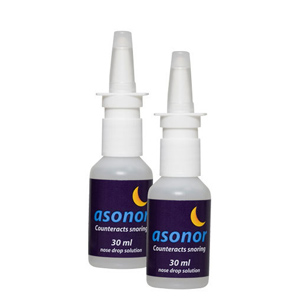Snoring can be a bit more than just bedtime nuisance especially for people who have to sleep with snorers. And for those who snore, it does not get any better either. If left untreated, it can develop into serious complications like Sleep Apnea. But before we can curb the problem, it is important to understand why do people snore.
More or less everyone snores once in a while. But if it’s a recurring occurrence then, not only is your health at risk but your relationships is also at stake. No one wants to sleep beside someone who snores and disturbs their sleep rhythm. The good news is snoring can be curbed if not completely cured. But before that, you need to know why do people snore.
Why People Snore?
Snoring is a condition when the uvula tissue placed at the back of the throat relaxes during sleep and causes an obstruction in the air movement. The vibration caused due to this leads to what we often refer to as the snoring sound. While the sound may be soft and harmless in some, for many others the sound is loud and irritating. Not only that, but it may also be a symptom of a person suffering from Sleep Apnea, a much more serious issue.
The Most Common Reasons For Snoring Are:
So snoring happens when the uvula tissue and other muscles in the throat relax or cause an obstruction. Let us look at some of the reasons why it may cause an obstruction.
Aging-Related Issues:
Snoring often develops or increases as we age. This is because as we age, the passage in the throat shrinks causing the obstruction of air a more likely issue. This is the reason people in the age of 40 and above are more likely to snore than young adults. However, lifestyle changes like breathing exercises can combat this aging-related issue. Moreover nasal sprays may come in handy too, to keep the muscles and tissues tight in the throat.
Anatomy of Mouth:
Some people with large tonsils especially children may also suffer from snoring. This can be easily treated by removing the tonsils.
Weight-related issues:
People who are overweight tend to snore more. This is because of the extra lining of tissues that builds up in the back of their throat. Add to that the abnormally elongated uvula tissue and the snoring problem is quite obvious. The best solution here is to reduce weight.
Temporary Problems:
If you are facing the issue of snoring temporarily it may be due to many reasons:
a) Alcohol: Excess consumption of alcohol loosens up the muscles and may lead to snoring.
b) Sinus or Congestion: Mucus in the mucous membrane may also cause a temporary obstruction causing snoring while sleeping.
c) Sleep Pattern: If you have been too tired or sleep deprived, the muscles and tissues may relax excessively causing an obstruction in the air movement. Moreover, sleeping on your back may also lead to snoring as the gravity pulls the uvula tissue coming in the way of the air movement.
Now that you know why do people snore, it may be easier for you to find the solution. Consider using nasal sprays to tighten the nasal tissues and muscles so that it does not obstruct the air movement. If the condition is prolonged, consult a physician for a trusted advice.










